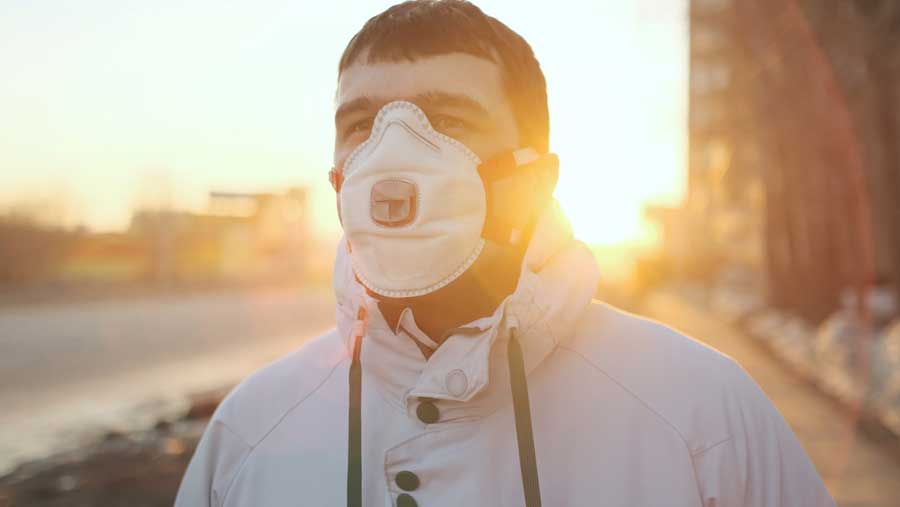In the past decade, studies have found that taking Vitamin D can lower the odds of developing respiratory infections, especially among people who have documented deficiencies. Now scientists are trying to find out whether it might also help protect against Covid-19.
Some scientists believe that people with Vitamin D deficiencies have weak or abnormal immune responses that make them more susceptible to developing Covid-19 and experiencing severe symptoms. The notion that Vitamin D levels could influence the risk of Covid-19 has sparked debate among experts and prompted researchers at Harvard and other universities to start randomised trials examining whether there is a link.
But so far, most of the evidence comes from observational studies that do not prove causation. And experts are urging people to be cautious about taking high doses of supplements in the hopes of obtaining benefits that may not exist.
The speculation that Vitamin D could protect against Covid-19 has been fuelled in part by observations that deficiencies are particularly common among groups that have been hit disproportionately hard by the novel coronavirus, such as older adults. The body synthesises Vitamin D through direct exposure to sunlight, and people who are elderly or homebound tend to produce lower levels of it. Obesity, another risk factor for severe Covid-19, is also associated with low Vitamin D levels.
Vitamin D helps reduce inflammation and can stimulate the release of antimicrobial proteins that kill viruses and bacteria. A team of researchers at Northwestern, US, released a study, which has not yet been peer-reviewed, suggesting that Vitamin D can help quell cytokine storms, a type of immune reaction that worsens outcomes for Covid patients.
In March, Dr Tom Frieden, a former director of the Centers for Disease Control and Prevention, wrote an opinion piece suggesting that Vitamin D deficiencies could worsen outcomes for people who develop Covid-19. He urged people to avoid deficiencies by spending time in the sun, taking supplements or eating foods rich in Vitamin D such as fatty fish, egg yolks and fortified milk.
The Institute of Medicine recommends that most adults get 600 international units (IU) of Vitamin D daily, or 800 IU if they are aged 71 and older, to protect musculoskeletal health. The Institute of Medicine classifies 4,000 IU a day as the tolerable upper intake level, meaning that above that threshold there is a greater chance of side effects such as increased calcium in the blood, which can lead to weakness, digestive complaints or kidney problems. Since the pandemic began, sales of supplements promoted for immune health have soared. But preliminary studies of Vitamin D and Covid have yielded mixed results.
At the University of Chicago Medicine, US, which serves a largely black and Hispanic population on the South Side of Chicago, researchers reviewed the medical records of more than 4,300 patients, many of them healthcare workers, who were tested for Covid-19 in March and early April. After controlling for factors that can influence Vitamin D levels, such as age, race and chronic medical conditions, they found that people who were Vitamin D deficient before the pandemic began were 77 per cent more likely to test positive for Covid-19 compared to people who had normal levels.
Dr David Meltzer, the lead author of the study which has not yet been peer-reviewed, cautioned that the findings were correlational and did not prove causation. He said he and his colleagues were recruiting local paramedics, police officers and other emergency workers for a randomised trial that will test whether taking low to moderate doses of Vitamin D daily has an impact on their risk of developing Covid-19 or the severity of their symptoms. Meltzer suspects that people taking Vitamin D who contract the virus will have fewer symptoms of Covid-19 “because the immune system will be less likely to have an exaggerated inflammatory response”.
“I think you can learn a lot from observational studies,” said Dr Meltzer. “But in the end we desperately need randomised trials to determine as rapidly as we can if there’s a real effect here.”
Dr JoAnn Manson, a Harvard Medical School professor and chief of preventive medicine at Brigham and Women’s Hospital in Boston, US, said the lines of evidence linking low Vitamin D to Covid-19 were compelling. She is starting a nationwide randomised trial that will test whether assigning people to take Vitamin D every day for a month after a positive coronavirus test reduces the severity of their illness. The trial will also look at whether giving Vitamin D to other people in their households helps prevent them from developing the infection.
In the meantime, Dr Manson said people should take simple steps to avoid Vitamin D deficiencies, such as being physically active outside while social distancing and eating foods like fortified cereals, fortified dairy, sun-dried mushrooms and fish. For people who cannot get outside or get enough Vitamin D from their diets, supplementing with 1,000 to 2,000 IU a day is reasonable, she said. But she urged people not to take high doses.
“More is not necessarily better,” she said. “The goal is to avoid a deficiency. It’s not to get megadoses.”
New York Times News Service










